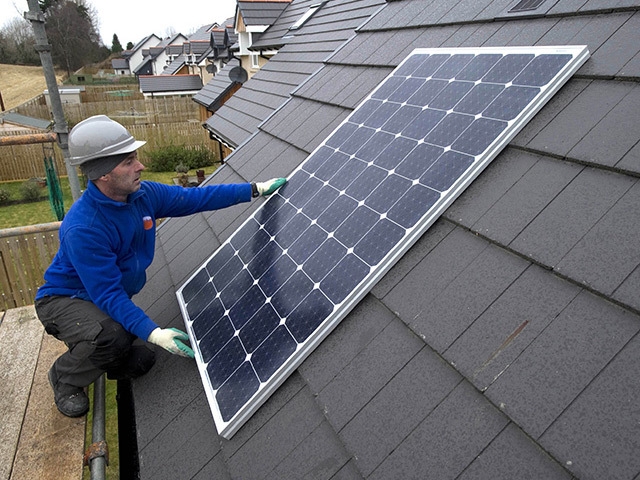
Schools, businesses and communities should be given financial support to install medium-sized renewable energy schemes such as wind turbines and solar panels, MPs have urged.
Local schemes could provide cheaper electricity to communities, cut costs for businesses and encourage people to engage with measures to save energy, as well as increase the UK’s energy security, the Energy and Climate Change (ECC) parliamentary committee argued.
Local energy could provide a significant proportion of the UK’s energy capacity in the future, although large-scale projects would still supply the majority of power for the country, the MPs said.
But while households which install small-scale systems, such as solar panels, and major renewables’ projects both receive financial support, medium-sized schemes, between 10 and 50 megawatts, fall through the gap and receive no cash.
The Government must bring forward proposals to support such schemes to incentivise people to install them, alongside a package of measures addressing finance, planning, grid access and advice, a report from the committee urged.
The Government-backed Green Investment Bank (GIB) could provide seed funding and project development cash for feasibility studies, permits for the grid and other elements to reduce the risk in getting schemes off the ground.
Local energy projects currently struggle in the face of problems and costs obtaining planning permission, connection to the grid, public opposition and securing funding for the scheme, the committee’s report said.
Medium-sized projects could include wind turbines, solar “arrays” of a number of panels, “district” heating schemes which provide heat to a number of buildings and could be locally-owned, run by councils or installed by companies, or organisations including universities or hospitals.
“Encouraging schools, businesses and local authorities to generate some of their electricity locally can bring big benefits to communities and the UK as a whole, Dr Alan Whitehead speaking for the committee.
“Businesses can reduce their energy overheads, locals can potentially benefit from cheaper electricity or heat, and councils can use projects to tackle fuel poverty, cut costs and reduce carbon emissions.
“Medium-scale power plants could also help to boost energy security. Local heating schemes in particular could be helpful in balancing out peaks and troughs in the electricity supply and demand by storing energy as hot water when there is a surplus of electricity being generated.
“Although it is unlikely that local energy projects will eliminate the need for larger, centralised power stations completely, with some Government support they could provide a significant proportion of the UK’s energy capacity while reducing carbon emissions and increasing efficiency,” he added.
The report also urged the Government to do more to encourage local authorities to identify suitable areas for renewable energy development in their areas.
It said councils should set out clear guidance about what is expected from local energy projects to reduce risk in the planning process and prevent bad projects from coming forward.
And the Government should encourage businesses to offer local people a stake in all new energy developments, or consider making community ownership mandatory, which could help boost support for new power schemes.
Recommended for you
